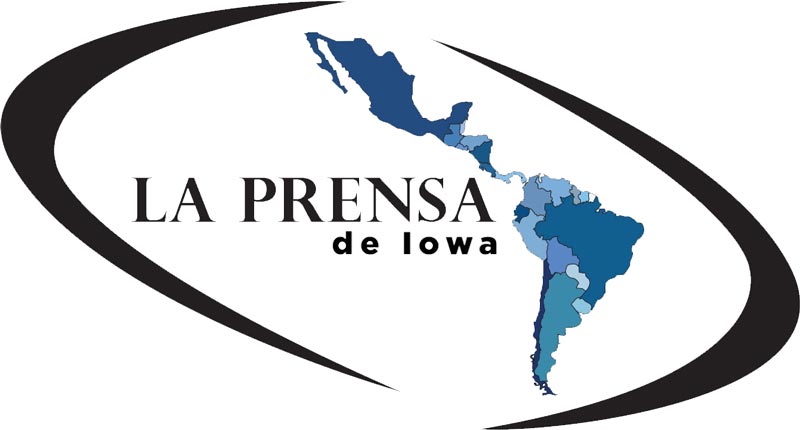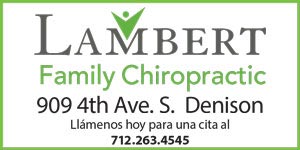Abuso doméstico contra gente indocumentada
/Algunos individuos sin principios humanos ni escrúpulos piensan que tener documentos en este país les da derecho de humillar a su pareja o aun familiar, mientras que en sus mejores vestimentas visitan sus iglesias para darse golpes en el pecho; mientras que con sus mejores sonrisas hablan con sus pastores o sacerdotes de sus iglesias para ofrecer el diezmo o depositar la limosna, creyendo que así están comprando el pase a la salvación. Aunque en sus casas son unos o unas lobas o lobos vestidos de corderos y verdugos de sus parejas o algún familiar que maltratan y humillan porque no tiene papeles. El abuso doméstico en los hombres y mujeres indocumentados es un secreto a gritos en nuestra población.
Victoria Reyna-Rodríguez
LA PRENSA IOWA
La violencia doméstica ha estado afectando a las mujeres y a los hombres en los Estados Unidos a niveles muy altos, y aquellos que son normalmente olvidados, pero que son afectados de igual manera por la violencia, son las personas indocumentadas y sin protección.
Michelle Carlson, Representante del Centro de Crisis Familiar de Denison (Victim Advocate for Family Crisis, por su nombre en inglés).
Michelle Carlson, representante de víctimas en el Centro de Crisis Familiar (Family Crisis Centers por su nombre en inglés), explicó los peligros que conlleva a las personas indocumentadas que sufren abuso por individuos documentados, que usualmente son la pareja de la persona que no un estado legal en el país.
“En casos donde la pareja tiene estancia legal en el país mientras que la víctima no, la pareja suele usar el estado ilegal de la víctima en su contra para mantener el control sobre esta,” dijo Michelle.
Michelle dijo que existe un problema cuando un individuo busca el poder y control sobre los demás; “muchas veces es visto como explotación, pero lo que realmente es manipulación.”
“Mucha gente, cuando escuchan sobre violencia doméstica o abuso doméstico, suelen pensar que es algo físico, no siempre es así. Hay muchas cosas que son parte de la violencia doméstica. Puede ser abuso emocional, físico, financiero, o puede ser manipulación donde los abusadores usan a los hijos como amenaza o el estatus migratorio de la víctima.”
Cuando alguien llega a un país distinto para comenzar una nueva vida, lo cual a veces es peligroso para muchos, es lógico que la persona haga todo lo posible para protegerse a sí mismo. Tristemente, para muchos inmigrantes indocumentados esto involucra el callar y lidiar con el abuso y la violencia que están experimentando en casa.
“La mayoría de las víctimas no salen a la luz de inmediato,” explicó Michelle. “Muchas personas soportan el maltrato por muchos años antes de pedir ayuda. El punto que nos gustaría expresar es que, si alguien ha experimentado esto, en el Centro de Crisis Familiar siempre estamos listos para hablar con las víctimas, no importa cuánto tiempo la persona ha estado lidiando con el abuso.”
Los representantes del Centro de Crisis Familiar están disponibles para escuchar a víctimas de abuso, al mismo tiempo que les ayudan a tomar decisiones que beneficien a las víctimas y a sus familias.
“Nadie sabe mejor sobre ellos [las víctimas] que ellos mismos, así que no es nuestro trabajo el decirles que hacer, sino ayudarles a tomar una decisión que les beneficie.” expresó Mitchelle.
Para muchos, según Michelle, el miedo a ser deportados es una de las razones por las que muchos indocumentados no se animan a hablar sobre el abuso doméstico al cual están siendo sometidos o algún otro abuso que hayan experimentado.
“En el Centro de Crisis Familiar no estamos para juzgar y mucho menos para rechazar a nadie. Nosotros podemos ayudar a la víctima a buscar varias opciones para mantener u obtener su documentación legal, ya sea que la víctima quiera o no, que las autoridades se vean involucradas.”
Michelle también explicó que el estado legal de la víctima no es algo importante para el Centro ya que la misión de los trabajadores es ayudar a gente que se encuentra en riesgo, y asegurarse de que puedan vivir de forma tranquila y libre de la violencia doméstica.
“Violencia doméstica no discrimina género o raza ni nada por el estilo, y nosotros tampoco discriminamos. Los reportes y estadísticas usualmente muestran el número de víctimas bastante cerca cuando se refiere a hombres y mujeres. Una de cada tres mujeres, y uno de cada cuatro hombres han experimentado violencia doméstica en su vida.” Dijo Michelle.
De igual manera, habló de la importancia de que los hombres sepan que los servicios en el Centro de Crisis Familiar están disponibles para todos aquellos que se encuentran en situaciones peligrosas, lo que incluye a los hombres, mujeres y niños.
“La falta de conocimiento que hay es una de las barreras que enfrenta la gente,” dijo Michelle.
También es importante saber que nadie de la organización obligará a las víctimas a hacer algo que ellos o ellas no deseen.
“Una persona en una situación abusiva ya ha perdido su poder y control, así que queremos ayudarles a recuperar su independencia y que tomen sus propias decisiones.”
Michelle también comentó de la importancia de que las víctimas se sientan escuchadas, “queremos que sepan que les creemos y queremos ayudarles a través de su proceso de sanación, al mismo tiempo que les ayudamos a conseguir recursos dentro de su comunidad.”
Michelle compartió algunos consejos para los amigos o familiares de las víctimas que no tienen experiencia en lo que el abuso doméstico se refiere. “Si alguien te cuenta que está experimentando abuso, es muy posible que sea la primera vez que la víctima lo esté comentando,” dijo Michelle. “Ya sea en la oficina de un doctor, un amigo, o un familiar, en algún momento tenían que romper el silencio [...] Lo más importante que hay que hacer es que el amigo o el familiar les deje saber que creen en ellos, al igual que validan sus sentimientos. A veces, el dejarles saber qué les crees y que nadie merece vivir de esta manera es todo lo que la víctima necesita escuchar.”
La información del Centro de Crisis Familiar puede ser encontrada en múltiples idiomas alrededor de todas las comunidades. También en las escuelas locales, ya que los jóvenes también son víctimas de estos problemas. Entre más pronto las personas afectadas tengan acceso a los recursos, más pronto pueden actuar.
La organización cuenta con una línea de crisis de 24-horas que puede ser contactada vía telefónica al 1-800-382-5603 o vía texto mandando “iowahelp” al 20121. Las víctimas también pueden visitar el sitio en línea www.familycrisiscenters.org/how-we-can-help.php.
Para las personas que no cuentan con transporte, el Centro de Crisis Familiar cuenta con representantes móviles, los cuales pueden reunirse con las víctimas en parques, recogerlos en la calle o incluso en sus casas. Lo que sea necesario para ayudar.
“No importa si es día festivo, si son las 2 a.m., o un fin de semana [...] si hay una crisis, estaremos ahí,” afirmó Michelle.
Translation
Domestic abuse against undocumented people
Some individuals with legal documentation, which lack a sense of humanity or moral values, think that they have the right to humiliate their partners or family members that don't have legal documentation in the country; meanwhile, these individuals assist church services, talk with their priests and give offerings thinking this will secure their salvation. These wolves in sheep's clothing serve not only as abusers but as executioners of their own blood; domestic abuse is a shouting secret between our immigrant communities.
Victoria Reyna-Rodríguez
LA PRENSA IOWA
Domestic violence has been affecting individuals in the U.S. at high rates for years, and those often most forgotten about who are also affected by this crisis are those who are undocumented and unprotected.
Michelle Carlson, a victim advocate at Family Crisis Centers, explained the dangers that come along with being an undocumented individual who is abused by a documented individual, usually a spouse or partner.
“In cases like those where one spouse is documented and the other is not, the documented spouse often uses that lack of documentation as a weapon and offense to maintain that power and control over the undocumented person,” Carlson said.
Carlson said it is an issue of one seeking power and control over another. It could be seen as exploitation, but Carlson often calls it manipulation.
Michelle Carlson, Victim Advocate for Family Crisis
“A lot of people, when they hear domestic violence or domestic abuse they think it’s just physical, and it’s really not, there are so many different pieces that fall into domestic violence,” said Carlson. “It can be emotional, physical, it can be financial. It can be manipulation, and using kids and again that documentation status.”
When you’ve come to a whole new country, started a whole life, and that is even slightly jeopardized, you are going to do whatever it takes to protect yourself. And for most undocumented immigrants, that is staying quiet about the abuse and violence they are experiencing.
“Most of them don’t come forward right away,” said Carlson. “Some of them endure it for many years before they come forward. The thing we like to express to anybody who might be experiencing this is no matter how long they’ve experienced it, at Family Crisis Centers we’re always ready to talk about it.”
Carlson said at Family Crisis Centers their advocates listen without judgement, and want to help individuals make decisions that are best for them and their families.
“They’re the experts on their life, so it’s not our job to tell them what to do, but rather help them make the decisions that they feel will be best for their lives,” Carlson said.
For many, according to Carlson, fear of deportation is also a big reason many undocumented individuals don’t come forward in regard to domestic violence, or any violence they’ve enxperienced.
“At Family Crisis Centers we’re not here to judge, we don’t turn anybody in. We can actually help set them up with different options with maintaining or obtaining their documentation status, whether they want to work with law enforcement or not, there’s lots of different options,” Carlson said.
Carlson said that documentation status is not something that matters to anyone at Family Crisis Centers, and what matters most to their workers is getting individuals in danger to a point where they can live their lives free from violence.
“Domestic violence doesn’t discriminate on gender or race or anything like that, we don’t discriminate either. The reports and statistics actually show the amount of victims are fairly close when it comes to male and female, it’s one in three women and one and four men who have experienced some sort of domestic violence in their life,” Carlson said.
Carlson noted the importance of letting men know that services available at Family Crisis Centers are available to everyone in dangerous situations, including men, not just women and children.
“The lack of knowledge there is one of the barriers that people face,” Carlson said.
It’s also important to know that no one at Family Crisis Centers will make any individual do anything they don’t want to do.
“Someone in a domestic violence situation has already had their power and control taken away, so we just want to help them make their own informed decisions,” Carlson said.
Carlson also touched on the importance of sometimes, just feeling heard.
“We want them to know we believe them,” said Carlson. “We want to help them through their own healing processes and setting them up with resources in their community.”
Carlson also had tips for if an individual came forward to someone who isn’t a professional about their experience with abuse.
“If somebody is telling you that they’re experiencing this, it’s very likely it’s the first time they’re telling somebody,” said Carlson. “Whether it’s the doctor's office, it’s a friend, a family member, at some point they just kind of break the silence [...] The most important thing to do is to let them know you believe them and validate their feelings,”
Sometimes letting them know you believe them and that nobody deserves to live like this is all they need to hear, Carlson said.
Family Crisis Centers information can be found all over the community in multiple languages. They also present at local schools, as the youth is experiencing these issues as well. The earlier they receive resources, the better. Family Crisis Centers want survivors to know they’re available.
Family Crisis Centers has a 24 hour crisis line that can be reached by calling 1-800-382-5603 or texting “iowahelp” to 20121. You can also visit their website at https://www.familycrisiscenters.org/how-we-can-help.php.
Family Crisis Centers also does mobile advocacy for victims who don’t have transportation, or can’t make it into the office. Victim advocates can meet you at a park, pick you up on a walk, pick you up at a house, anything.
“It doesn’t matter if it’s a holiday, if it’s 2 a.m., if it’s a weekend [...] If there’s a crisis we will be there,” Carlson said.










































